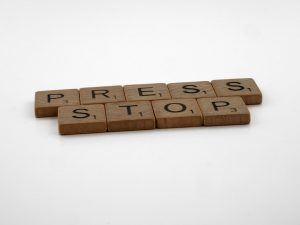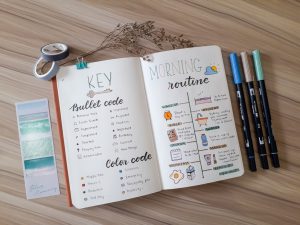Find Calm: Effective Strategies for Managing Stress
Discover effective strategies to manage stress and find calm. Empower your mind and enhance well-being. Start your journey to tranquility to
Understanding Stress
What is Stress?
Stress is a natural response to challenging or threatening situations. It is the body’s way of reacting to any demand or threat, whether real or perceived.
When you feel stressed, your body releases hormones such as adrenaline and cortisol, which prepare you to face the challenge or flee from it. This response is known as the “fight-or-flight” response.
While stress is a normal part of life, chronic stress can have negative effects on both physical and mental health.
Understanding what triggers stress and how it affects the body is essential for effective stress management.
Types of Stress
Stress can be categorized into different types, each with distinct characteristics and effects. Acute stress is short-term and is the most common form of stress.
It often occurs in response to immediate threats or pressures and can be thrilling in small doses, such as riding a roller coaster.
Chronic stress, on the other hand, is long-term and can result from ongoing situations such as a demanding job or an unhappy relationship. It can lead to significant health issues if not managed properly.
Episodic acute stress is a recurring form of acute stress, often affecting individuals who take on too many responsibilities or are perpetually in a rush.
Causes of Stress
Stress can be triggered by a wide range of factors, known as stressors. Common stressors include work-related pressures, financial difficulties, relationship problems, and major life changes such as moving or losing a loved one.
Environmental factors like noise, pollution, and overcrowding can also contribute to stress levels.
Individual perception plays a crucial role in stress. What may be stressful for one person might not be for another.
This perception is influenced by personality, past experiences, and coping mechanisms.
Symptoms of Stress
Stress manifests in various ways, affecting both the mind and body. Common psychological symptoms include anxiety, irritability, and depression.
Cognitive symptoms may involve difficulty concentrating, forgetfulness, and indecisiveness.
Physically, stress can lead to headaches, muscle tension, fatigue, and sleep disturbances. Long-term stress can contribute to more serious health problems such as heart disease, obesity, and gastrointestinal issues.
Effective Coping Strategies
Mindfulness and Meditation
Mindfulness and meditation are powerful tools for managing stress.
By focusing on the present moment, individuals can reduce anxiety and increase their awareness of thoughts and feelings without judgment. Regular practice of mindfulness can lead to a decrease in stress levels and an improvement in overall well-being.
Meditation techniques, such as deep breathing and guided imagery, help calm the mind and body.
These practices can be done anywhere and at any time, making them accessible strategies for immediate stress relief.
Physical Activity
Engaging in regular physical activity is a highly effective way to manage stress. Exercise releases endorphins, which are natural mood lifters.
Whether it’s a brisk walk, a run, or a yoga session, physical activity helps to clear the mind and improve mood.
Incorporating exercise into daily routines can also improve sleep quality, increase energy levels, and boost self-confidence, all of which contribute to better stress management.
Social Support
Having a strong support network is crucial for managing stress. Connecting with friends, family, or support groups provides emotional comfort and practical assistance.
Sharing feelings and experiences with others can lead to new perspectives and solutions to stressors.
Social interactions also foster a sense of belonging and reduce feelings of isolation, which can significantly alleviate stress.
Time Management
Effective time management is essential in reducing stress. Prioritizing tasks, setting realistic goals, and breaking projects into smaller, manageable steps can prevent feelings of overwhelm.
Using tools such as planners or digital calendars can help keep track of responsibilities and deadlines.
Allocating specific times for work and relaxation ensures a balanced lifestyle, reducing the likelihood of burnout and stress accumulation.
Healthy Lifestyle Choices
Maintaining a healthy lifestyle is fundamental in managing stress. A balanced diet, adequate sleep, and avoiding excessive caffeine and alcohol consumption can have a positive impact on stress levels.
Proper nutrition and rest support the body’s ability to cope with stress effectively.
Additionally, engaging in hobbies and activities that bring joy and relaxation can provide a much-needed break from stressors, promoting a healthier mental state.
Healthy Lifestyle Habits
Regular Physical Activity
Engaging in regular physical activity is a cornerstone of managing stress effectively. Exercise releases endorphins, which are natural mood lifters, helping to reduce stress levels.
Whether it’s a brisk walk, yoga, or a gym session, incorporating at least 30 minutes of physical activity into your daily routine can significantly lower stress levels.
Moreover, physical activity can improve sleep quality, which is often disrupted by stress. By committing to regular exercise, individuals can create a buffer against stress, promoting both mental and physical resilience.
Balanced Nutrition
A balanced diet plays a crucial role in stress management.
Consuming a variety of nutrients helps maintain energy levels and supports brain function, which is essential for coping with stress. Foods rich in omega-3 fatty acids, such as salmon and walnuts, are known to improve mood and reduce anxiety.
Additionally, staying hydrated and limiting caffeine and sugar intake can prevent mood swings and help maintain a calm demeanor.
Eating regular, balanced meals provides the body with the necessary fuel to handle stress more effectively.
Adequate Sleep
Sleep is a vital component of stress management. Lack of sleep can exacerbate stress, leading to a vicious cycle of insomnia and anxiety.
Prioritizing sleep by maintaining a consistent sleep schedule and creating a restful environment can enhance the body’s ability to cope with stress.
Techniques such as mindfulness meditation or deep breathing exercises before bedtime can also promote relaxation and improve sleep quality, thereby reducing stress levels.
Mindfulness and Relaxation Techniques
Incorporating mindfulness and relaxation techniques into daily life can significantly reduce stress. Practices such as meditation, deep breathing, and progressive muscle relaxation help calm the mind and reduce anxiety.
Mindfulness encourages individuals to focus on the present moment, reducing the tendency to overthink or worry about future stressors.
Regular practice of these techniques can lead to long-term improvements in stress management and overall well-being.
Seeking Professional Help
Recognizing the Need for Professional Assistance
Stress is a common part of life, but when it becomes overwhelming and starts to affect your daily functioning, it might be time to seek professional help. Recognizing the signs that stress is beyond your control is crucial.
These signs can include persistent feelings of anxiety, depression, or an inability to cope with everyday tasks.
Professional help can provide the necessary support and strategies to manage stress effectively. It is important to understand that seeking help is a sign of strength, not weakness, and it can lead to significant improvements in your mental health and overall well-being.
Types of Professionals Who Can Help
There are various types of mental health professionals who specialize in stress management.
Psychologists and therapists can offer counseling and cognitive-behavioral therapy to help you understand and change thought patterns contributing to your stress. Psychiatrists, on the other hand, can prescribe medication if necessary to manage symptoms of stress-related disorders.
Additionally, life coaches and stress management consultants can provide practical advice and techniques to help you organize your life and reduce stress.
Choosing the right professional depends on your specific needs and the severity of your stress.
Benefits of Professional Stress Management
Engaging with a professional can provide numerous benefits. They can offer personalized strategies tailored to your unique situation, helping you to develop coping mechanisms that are effective for you.
Professional guidance can also help you identify stress triggers and develop a plan to address them proactively.
Furthermore, having a professional to talk to can provide emotional support and validation, which can be incredibly comforting during times of high stress. This support can empower you to take control of your stress and improve your quality of life.
How to Find the Right Professional
Finding the right professional involves research and consideration of your specific needs.
Start by asking for recommendations from friends, family, or your primary care doctor. Online directories and professional organizations can also be valuable resources for finding qualified mental health professionals in your area.
When selecting a professional, consider their credentials, experience, and areas of expertise.
It may be helpful to schedule an initial consultation to ensure they are a good fit for your personality and needs. Remember, the right professional can make a significant difference in managing your stress effectively.
FAQ
Q1: How long does it typically take to see results from stress management techniques?
A1: The time it takes to see results from stress management techniques can vary widely depending on the individual and the methods used. Some people may experience immediate relief from stress after engaging in activities like deep breathing or meditation, while others may need several weeks of consistent practice to notice significant changes. Techniques such as regular exercise, mindfulness, or cognitive-behavioral therapy often show more substantial benefits after a few weeks to a couple of months of consistent practice. It’s important to be patient and persistent, as building new habits and coping mechanisms can take time.
Q2: What are some common obstacles people face when trying to implement stress management strategies?
A2: One common obstacle is finding the time to incorporate stress management strategies into a busy schedule. Many people struggle to prioritize self-care amidst work, family, and other responsibilities. Additionally, some individuals may find it challenging to stay motivated, especially if they do not see immediate results. Another barrier can be a lack of knowledge or understanding of which techniques might be most effective for their specific stressors. It’s often helpful to start with small, manageable changes and gradually build up to a more comprehensive stress management routine.
Q3: How can I determine which stress management techniques are best suited for me?
A3: Determining the best stress management techniques for you involves a combination of self-reflection and experimentation. Start by identifying the sources of your stress and consider what activities you typically enjoy or find relaxing. You might try various techniques such as yoga, journaling, or progressive muscle relaxation to see how they affect your stress levels. It’s also beneficial to consult with a healthcare professional or a therapist, who can provide personalized recommendations based on your lifestyle and stressors. Remember, what works for one person may not work for another, so it’s important to find what feels right for you.
Takeaway
“Ready to boost your well-being with a simple change? Start by incorporating a daily 10-minute walk into your routine and feel the positive effects on your health. Share this article with friends who might benefit too! For more evidence-based health tips, explore resources from WHO and other trusted sources. Your journey to a healthier lifestyle starts now!” Industry analysts believe this signals a shift in market dynamics.
References
- Calm is a wellness company offering evidence-based meditation tools for stress and sleep management.











Comments